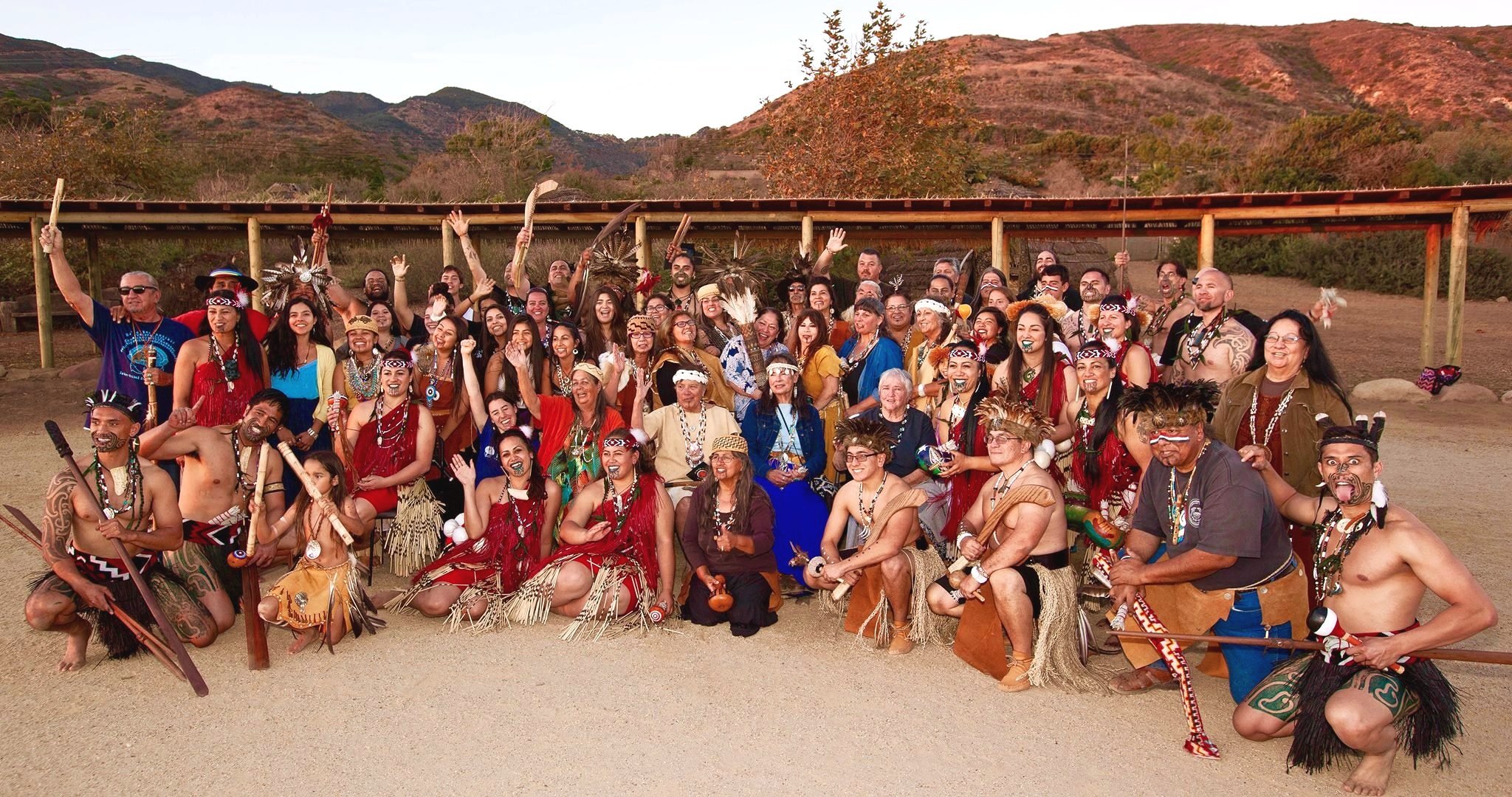
First Nations Ecological Conservation Alliance
"Humankind stands at a precipice. We accept our responsibility as stewards of nature, the source of our spiritual and bodily health.
Our species does not exist in isolation from the biosphere; rather, our fate and that of our children and future generations depend on it.”
- Excerpt from the Declaration of The Gathering of Indigenous Spiritual Leaders - Practitioners of Nature
Wishtoyo Chumash Village October 8, 2011
Intergenerational Trauma and Native Identity
When we see ourselves through the lens of our oppressors, we are guaranteed to see a distorted view of ourselves. When we claim this view as our identity, we serve the interest of our ongoing colonization. When we force this view on each other, we are doing the oppressors work for them. This will never serve the interests of the colonized, only the colonizer.
Beyond the Colonial Narrative
The community held knowledge passed down from our ancestors is the core of who we are as a people. It is through this legacy that we know ourselves. “Western” academic thought brings us important sources that add to our understanding of our identity. We regard these alongside our indigenous traditional knowledge, but we do not hold them as superior. Our ancestors were sophisticated thinkers and the true primary source of our accumulated knowledge base. As is the case with all human bodies of knowledge -- differing worldviews, value systems, methodologies, and interpretations will sometimes lead to conflicting conclusions. These conflicts can impact not only how we see ourselves today, but also who we will become in future generations.
Modern Native communities navigate these multiple perspectives internally, honoring indigenous self-determination and the sovereignty of tribal entities (independent of the colonial state). Unfortunately, some people actively disregard our right of self-determination, seeking to place this power into the hands of a select few (academics, colonial governments, self-appointed arbiters). As sovereign peoples, indigenous communities and tribes do not need permission, certification, or validation in order to practice self-determination. See the United Nations Declaration of the Rights of Indigenous Peoples (Articles 33 and 34). See also the American Declaration of the Rights of Indigenous Peoples (Article 1).
Breaking the Silence
Unfortunately, in Indigenous communities, we are sometimes our own worst enemies. We may fear that someone else’s success comes at our expense. We might think that the only way we can protect ourselves is by tearing down others. We take sides and create divisions in our own communities. Sometimes we don’t even know the original source of animosity, and yet we just go along with the crowd. These are not the values and behaviors we wish to pass on to future generations. Our choices create the future inherited by our children. Rather than rushing to judgement and action, we can be still for a time and reflect on our way forward.
Recent and ongoing events have expedited our call to action, but we have always felt strongly that standing in solidarity is a responsibility we have to our people. We need to create supportive and safe space for our people to work through their interpersonal conflicts without adding fuel to the fire. We can balance having compassion, dignity, and respect for others without having to diminish our own light. We can keep our community healthy and whole, and navigate conflict without ostracizing people. When we see community members and families coming under attack, we can stand together to hold space for resolution rather than allowing fear to keep us in the role of bystanders. We need to end the silence and embrace the healing.
Generational Clarity: Our Legacy for the Future
As Indigenous peoples, we are continuously living in connection with our ancestors, our contemporary communities, and our descendants to come. Our people have survived multiple waves of accumulated trauma that still impact us to this day. Healing from intergenerational trauma happens when we consciously move toward generational clarity.
It is our responsibility to choose our actions with a clear understanding of our collective past, a mindful approach to today’s challenges, and intentional consideration of our potential futures. Living under settler colonial occupation, we have limited resources to address the myriad difficulties faced by our communities on a continuous basis. We must be thoughtful regarding where we invest our energy and how we choose our priorities. Any action we take has the potential to ripple out and affect so many others, through time, without us ever even being aware of it.
Rising Together
We strive to pass on a legacy of unity and inclusion. We focus on building capacity, resilience, connection to culture, and protections for our homelands. It is our belief that meeting these goals serves the common good for all beings. There is more than enough work to go around, and if we stand side-by-side and work collaboratively, we can all rise together.


